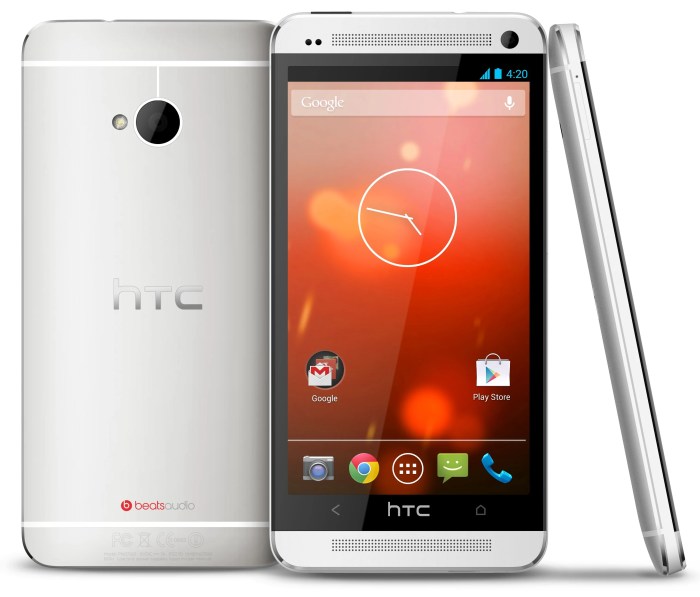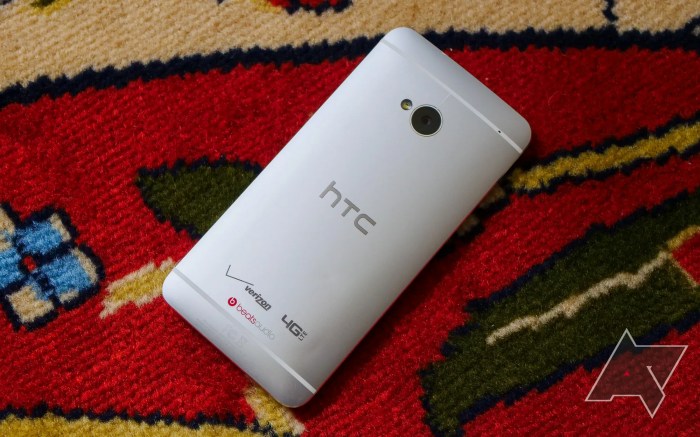HTC One M7 and Android 5.1
The HTC One M7, a groundbreaking smartphone released in 2013, was a flagship device that captivated users with its sleek design and powerful performance. While the device initially launched with Android 4.2.2 Jelly Bean, its software journey didn’t end there. The release of Android 5.1 Lollipop marked a significant milestone for the HTC One M7, bringing a fresh wave of features and enhancements to the device.
Android 5.1 Lollipop: Key Features and Improvements
Android 5.1 Lollipop introduced a plethora of improvements and new features to the HTC One M7, enhancing its user experience and functionality. This update brought a redesigned user interface with a Material Design aesthetic, offering a more visually appealing and intuitive experience.
Here’s a glimpse into some of the key features and improvements that Android 5.1 Lollipop brought to the HTC One M7:
- Material Design: Android 5.1 Lollipop introduced Material Design, a new design language that emphasized visual consistency and a more intuitive user experience. The Material Design aesthetic was evident in the revamped user interface, with elements like floating action buttons, cards, and transitions.
- Performance Enhancements: Android 5.1 Lollipop incorporated various performance enhancements, resulting in smoother app launches, improved battery life, and a more responsive user experience.
- Security Enhancements: Android 5.1 Lollipop strengthened security features, enhancing the device’s protection against malicious software and unauthorized access.
- Improved Notifications: The notification system received a significant overhaul in Android 5.1 Lollipop, offering more intuitive and visually appealing notifications, allowing users to manage their notifications more effectively.
- New Features: Android 5.1 Lollipop introduced new features like support for multiple user accounts, enhanced connectivity options, and improved accessibility features.
Android Update Timeline for HTC One M7
The HTC One M7 received a series of Android updates throughout its lifecycle, culminating in the release of Android 5.1 Lollipop.
Here’s a timeline of the major Android updates for the HTC One M7:
- Android 4.2.2 Jelly Bean (Initial Release): The HTC One M7 launched with Android 4.2.2 Jelly Bean in 2013.
- Android 4.3 Jelly Bean: The device received an update to Android 4.3 Jelly Bean in 2013.
- Android 4.4 KitKat: In 2014, the HTC One M7 was updated to Android 4.4 KitKat.
- Android 5.0.2 Lollipop: The HTC One M7 received an update to Android 5.0.2 Lollipop in 2015.
- Android 5.1 Lollipop: The final major Android update for the HTC One M7 was Android 5.1 Lollipop, released in 2015.
HTC’s Decision-Making Process: Htc Might Reconsider Android 5 1 For The Htc One M7
HTC’s decision to reconsider Android 5.1 for the HTC One M7 was likely a complex one, influenced by a variety of factors. While the company initially expressed plans to update the device, it ultimately decided to abandon those efforts. This decision raises questions about the factors that may have contributed to it and the potential challenges HTC faced in adapting Android 5.1 to the One M7’s hardware and software.
Factors Influencing HTC’s Decision
The decision to reconsider Android 5.1 for the HTC One M7 was likely influenced by a combination of factors, including:
- Hardware limitations: The One M7 was released in 2013, and its hardware may have been considered too outdated to handle the performance demands of Android 5.1. This could have resulted in slow performance, battery drain, and other issues.
- Software compatibility: Adapting Android 5.1 to the One M7’s existing software could have presented significant challenges, requiring extensive code modifications and testing to ensure stability and functionality.
- Resource allocation: HTC may have decided to prioritize resources on newer devices and software updates, rather than investing time and effort in supporting an older model like the One M7.
- Market demand: The popularity of the One M7 may have declined significantly since its release, reducing the potential return on investment for a software update.
- Cost considerations: Developing and testing an Android 5.1 update for the One M7 could have been expensive, especially considering the potential challenges involved.
Reasons for Delay or Cancellation
The delay or cancellation of the Android 5.1 update for the One M7 could have been due to several reasons, including:
- Technical difficulties: HTC may have encountered unforeseen technical challenges in adapting Android 5.1 to the One M7’s hardware and software, leading to delays or the decision to cancel the update altogether.
- Prioritization of newer devices: HTC may have prioritized software updates for newer devices, such as the HTC One M8 and M9, which were considered more commercially viable.
- Limited resources: HTC may have had limited resources available for software development and testing, leading to a decision to focus on more strategic initiatives.
- Lack of user demand: The demand for an Android 5.1 update for the One M7 may have been insufficient to justify the time and resources required to develop and release it.
Challenges in Adapting Android 5.1
Adapting Android 5.1 to the HTC One M7’s hardware and software could have presented several challenges, including:
- Hardware compatibility: Android 5.1 may have required features or capabilities that were not present in the One M7’s hardware, such as a specific processor or memory configuration.
- Software compatibility: The One M7’s existing software may have been incompatible with certain aspects of Android 5.1, requiring significant code modifications or rewrites.
- Performance optimization: Android 5.1 may have been too demanding for the One M7’s hardware, leading to slow performance, battery drain, and other issues.
- Security considerations: Android 5.1 introduced new security features and protocols, which may have required significant changes to the One M7’s existing security infrastructure.
Impact on Users and the Market
The decision to not release Android 5.1 for the HTC One M7 would have a significant impact on both users and the market. Users who had been anticipating the update would be disappointed, and the market position of the HTC One M7 could be affected.
User Reactions and Experiences
Users who were eagerly awaiting the Android 5.1 update for their HTC One M7 would likely experience a range of emotions, including disappointment, frustration, and even anger. The lack of an update could lead to a decline in user satisfaction, as they would be stuck with an older version of Android that may lack the latest features and security updates. This could also result in a decline in the perceived value of their device, as they may feel that HTC is not providing adequate support.
Market Position of the HTC One M7
The decision to not release Android 5.1 for the HTC One M7 could have a negative impact on the device’s market position.
- Reduced Appeal: The lack of a newer Android version could make the HTC One M7 less appealing to potential buyers, as they might prefer devices with the latest software. This could lead to a decrease in sales and a decline in the device’s resale value.
- Competitive Disadvantage: Compared to other devices in its class, the HTC One M7 would be at a disadvantage, as it would not be running the latest software. This could make it harder for HTC to compete in the increasingly competitive smartphone market.
HTC’s decision not to release Android 5.1 for the HTC One M7 could have a negative impact on the company’s brand image and market share.
- Damaged Reputation: The decision could be perceived as a sign that HTC is not committed to providing timely updates for its devices, which could damage the company’s reputation for quality and customer support. This could lead to a decline in consumer trust and loyalty.
- Loss of Market Share: The lack of a competitive edge in the market could result in a loss of market share for HTC. Consumers may choose to buy devices from other manufacturers that offer more up-to-date software and features.
Lessons Learned and Future Implications
HTC’s decision to not update the HTC One M7 to Android 5.1, despite earlier promises, generated significant controversy and negative feedback. The situation offers valuable lessons for both HTC and other smartphone manufacturers regarding software update strategies and customer expectations.
Impact on HTC’s Software Update Strategy
The HTC One M7 update debacle highlighted the importance of clear and consistent communication with users about software update plans. It also demonstrated the need for a more flexible and adaptable approach to software updates, especially for older devices. The situation likely influenced HTC’s future software update strategies, pushing them to adopt a more transparent and realistic approach.
Hypothetical Scenario: A Different Approach
HTC could have handled the situation differently by:
- Providing Regular Updates: Instead of delaying the update indefinitely, HTC could have released smaller, incremental updates for the One M7, addressing key issues and improving performance. This would have kept users engaged and satisfied, even if the full Android 5.1 update was not feasible.
- Communicating Honestly: Openly communicating the challenges involved in bringing Android 5.1 to the One M7, including hardware limitations and development costs, would have fostered trust and understanding among users. Transparency can help manage expectations and avoid disappointment.
- Offering Alternative Solutions: HTC could have explored alternative solutions for users who were eager for a newer Android experience. This could have included offering a discounted upgrade program to a newer HTC device or providing access to a custom ROM community for those comfortable with advanced software modifications.
Htc might reconsider android 5 1 for the htc one m7 – HTC’s decision to reconsider Android 5.1 for the HTC One M7 serves as a reminder of the complex interplay between hardware, software, and market forces in the tech industry. The update, though anticipated by many users, ultimately faced challenges that led to its reconsideration. This decision highlights the delicate balance that manufacturers must strike between satisfying user expectations and ensuring a smooth and efficient user experience. While the One M7 may have missed out on the latest Android update, its legacy as a stylish and powerful device endures. The decision also offers valuable insights into HTC’s software update strategies and the evolving landscape of the smartphone market.
While HTC might be considering Android 5.1 for the HTC One M7, it’s important to remember that compatibility issues can arise. For example, some users have reported trouble pairing their Android Wear devices with iPhones, like the iPhone 7. This issue could potentially lead to a similar situation for the HTC One M7, so it’s crucial to ensure all the necessary compatibility requirements are met before upgrading.
 Standi Techno News
Standi Techno News

